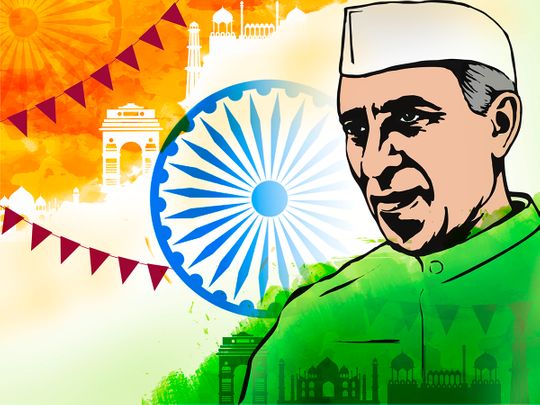
On August 15, 2022, India celebrates its 75 years of independence from colonial rule. The partitioned India that Jawaharlal Nehru took charge of as the prime minister at the end of British rule was extremely poor, hardly literate, dangerously food insecure, and communally explosive.
Only a few months after the independence, India lost its greatest leader of the millennium, Mahatma Gandhi, to a terrorist’s bullets. Another tall leader of India, who had led the process to unify princely states to a new country, Vallabhbhai Patel, also died of a heart attack within a few years. All these had led many to predict the imminent demise of its democracy and the country itself. On the eve of the tenth anniversary of India’s independence, renowned American journalist-scholar Selig S Harrison doubted the survival of the Indian state. The Indian project, however, has proved these predictions wrong for a long time.
India has not disintegrated in the last 75 years; rather, it has become larger by including territories like Goa and Sikkim. India has just missed being the world’s fifth largest economy by a whisker from its former colonial ruler. India is almost a recognised nuclear power and self-sufficient in food production. Despite doubts about its democratic character, India continues to be only among a handful of countries in the developing world, where the change of government has always been through electoral processes.
India was fortunate to have a leader of his stature and character to lead her for 17 years during the difficult formative period.
Moreover, a country where more than a billion Hindus live continues to be constitutionally secular since its independence. Why has India been unique in many ways compared to its neighbours in South Asia and among the developing countries in Asia, Africa, and Latin America? Here, the contributions of the country’s first, finest, and longest-serving prime minister, Jawaharlal Nehru, need serious attention.
Nehru was India’s prime minister and the tallest leader from 1947 until he died in 1964. As Nehru once said, “Time is not measured by the passing of years, but by what one does, what one feels, and what one achieves.”
Several post-colonial leaders in Asia and Africa ruled their countries longer than Nehru, but very few left a legacy that can match his. He was the most popular leader and had no competition within his party or country; still, he was always committed to democratic values, norms, and principles. He could have declared himself the prime minister for life, but he went through regular election grinds.
Primary tenet of Indian nationhood
Nehru had a deep commitment to democracy and secularism. A country can never be truly democratic without being secular, and no one was more convinced about it than Nehru. Democracy in its modern avatar is closely connected to the idea of secularism in 17th-century Europe. The conceptual framing that the society is made by people, not by a religious leader, is vital for democracy to survive and grow.
Those countries in the West that continue to be democratic could not have become so without the secularisation process. In Nehru’s mind, secularism was the primary tenet of Indian nationhood. He was convinced that a diverse country like India could only get political stability and territorial integrity by remaining committed to secularism.
Nehru not only built the fundamental institutional structure of democracy and secularism but also nurtured them for 17 years to gain the strength to be sustainable. No one can deny Nehru’s significant contributions to India becoming a secular democratic republic with a modern constitution and universal adult franchise.
On May 27, 1964, the day Nehru died, the then president of India, S. Radhakrishanan, in his tribute, said, “Jawaharlal Nehru was one of the greatest figures of our generation, an outstanding statesman whose service to the cause of human freedom is unforgettable. As a fighter for freedom, he was illustrious; as a maker of modern India, his services were unparalleled.”
Besides the emphasis on secularism and democracy, Nehru was also deeply committed to taking India to a modern age of scientific discovery and technological development. He was instrumental in reforming the ancient Hindu civil code that enabled Hindu widows to inherit property. He emphasised developing science and prioritised resource allocation for scientific research. In 1952, the first of the five institutes of technology (IITs) was established, patterned after the Massachusetts Institute of Technology. Besides IITs, he also founded IIMs, DRDO, Atomic Energy Commission, and the Indian National Committee for Space Research.
A rich and powerful legacy
All these academic and research institutions that make India proud today were established during his tenure as prime minister. Because of his commitment, India is probably the only country in the world whose constitution explicitly declares its commitment to ‘scientific temper.’
No leader is flawless, and Nehru too had his flaws. But, there is no doubt that while Gandhi was the undisputed leader of India’s freedom movement, Nehru was the maker of modern India. His contributions to nation-building, commitment to democracy and secularism, adherence to modernity and scientific temper ensured India’s rightful place in the world’s councils. They have helped make India what it is today.
India was fortunate to have a leader of his stature and character to lead her for 17 years during the difficult formative period. Nehru’s rich and powerful legacy must be remembered and celebrated while India is celebrating its 75 years of independence.









